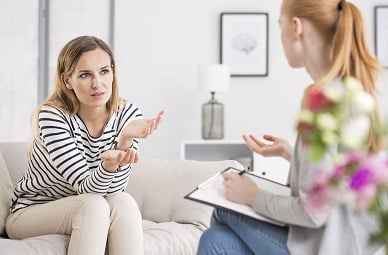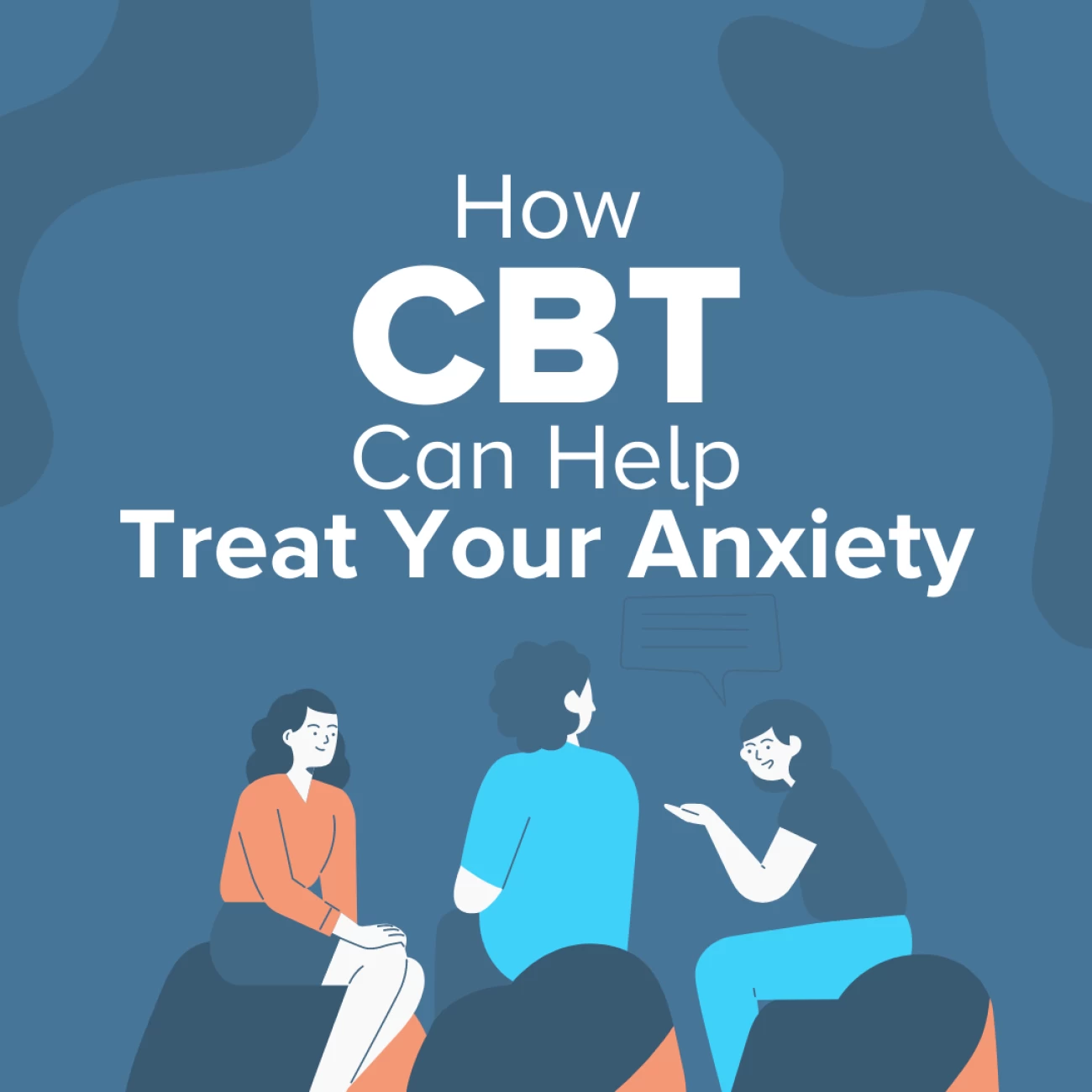Exploring Different Methods in Therapy for Stress And Anxiety Disorder for Long Lasting Adjustment
When tackling stress and anxiety problems, it's necessary to explore a variety of therapy methods. Each approach offers one-of-a-kind understandings and devices to assist you manage your symptoms successfully. You could discover that combining techniques can yield the most effective results. Recognizing the subtleties of these methods is vital to fostering long-term adjustment. What if the right mix could launch a brand-new degree of psychological well-being for you?
Understanding Stress And Anxiety Conditions: A Short Summary
Anxiousness problems, which impact millions of individuals worldwide, can greatly affect life. You could experience frustrating feelings of fear or worry that appear uncontrollable. These feelings can result in physical signs like an auto racing heart, sweating, or perhaps dizziness. Typical kinds of anxiousness conditions consist of generalized stress and anxiety problem, panic condition, and social stress and anxiety condition. Each has distinct indications, yet they all share a tendency to interrupt your routine and relationships.Understanding the root triggers of your anxiousness is important. It could originate from genes, brain chemistry, or life experiences. Recognizing your triggers can assist you manage your reactions much better. It is very important to keep in mind that you're not the only one in this struggle. Lots of people face similar challenges, and looking for assistance is a strong step toward feeling better. By learning about anxiousness disorders, you're currently on the path to understanding and managing your problem better.
Cognitive-Behavioral Treatment: Testing Negative Thought Patterns
In Cognitive-Behavioral Therapy, you'll start by determining the unfavorable idea sets off that contribute to your anxiety. Counseling services for anxiety. As soon as you identify these ideas, you'll work with replacing them with even more favorable alternatives. With each other, you'll build reliable coping strategies to assist handle your anxiousness in daily circumstances

Identifying Unfavorable Idea Triggers
Identifying the details triggers behind your negative ideas can be vital in managing anxiousness when you experience moments of distress. Beginning by paying focus to scenarios that provoke feelings of fear or fear. Is it a crowded area, a future due date, or a conversation with certain individuals? Take down these circumstances in a journal. This will help you recognize patterns in your thinking. Additionally, notice physical experiences that accompany your unfavorable ideas, like a racing heart or rigidity in your upper body. By identifying these triggers, you gain insight right into what's sustaining your stress and anxiety. Recognizing these connections is the primary step in testing those ideas and inevitably restoring control over your psychological feedbacks.
Replacing Thoughts With Positives
Challenging unfavorable idea patterns is a necessary action in transforming your frame of mind and minimizing anxiety. You might often discover on your own entraped in cycles of self-doubt or disastrous reasoning. As opposed to allowing these thoughts dictate your feelings, method changing them with reasonable options or positive affirmations. When you believe, "I can't handle this," move it to, "I can handle obstacles one action at a time." This simple modification can considerably influence your psychological state. Consistently determining and countering these unfavorable thoughts assists create a healthier interior dialogue. Keep in mind, it takes some time and initiative, but regularly practicing this technique can bring about long-term adjustment, encouraging you to face anxiety with renewed self-confidence and strength.
Building Coping Strategies With Each Other

Mindfulness and Acceptance-Based Approaches: Growing Present-Moment Understanding
As you browse the intricacies of anxiety, including mindfulness and acceptance-based strategies can substantially improve your capability to cultivate present-moment awareness. By focusing on the here and now, you'll find that you can observe your ideas and sensations without judgment. This method assists you recognize your stress and anxiety without feeling bewildered by it.Engaging in mindfulness workouts, such as deep breathing, body scans, or guided reflections, permits you to ground on your own in your present experience. Acceptance-based methods urge you to welcome your emotions instead of battle against them. When you accept your sensations, they shed their power over you.Incorporating these practices into your day-to-day regimen can transform just how you reply to anxiety. You'll establish durability and learn to browse stressful scenarios with higher convenience. Eventually, cultivating present-moment understanding lays the foundation for lasting change, equipping you to lead a more satisfying life.
Exposure Therapy: Challenging Concerns Slowly
Exposure treatment aids you challenge your worries in a gradual way, making it much less frustrating. You'll find out methods to encounter anxiety-provoking situations detailed, while additionally constructing coping approaches to manage your responses (Counseling services for anxiety). This strategy encourages you to take control and reduce stress and anxiety over time
Progressive Direct Exposure Techniques
When dealing with anxiety, progressively confronting your worries can be an effective means to restore control. This method, called gradual exposure, entails gradually exposing yourself to the scenarios or things that trigger your stress and anxiety. Start with less challenging situations and progressively function your means up to more difficult ones. As an example, if you hesitate of public talking, you could begin by speaking before a mirror, after that advance to sharing ideas with a buddy, and eventually address a tiny team. Each action aids desensitize you to the fear, building your confidence over time. Remember, it's necessary to speed yourself and celebrate small victories as you move via this procedure, strengthening your capability to handle stress and anxiety successfully.
Structure Coping Methods
Structure efficient coping techniques is vital for handling anxiety, specifically as you challenge your concerns slowly. One powerful approach is exposure therapy, where you begin by facing your fears in a regulated way. Begin with less frightening circumstances and slowly function your method as much as even more difficult scenarios. This steady direct exposure assists desensitize you to stress and anxiety triggers, making them much less overwhelming.Incorporate relaxation techniques, such as deep breathing or mindfulness, to relax your mind during direct exposure. Track your development, commemorating tiny success in the process to improve your confidence. Keep in mind, it's fine to take your time; the goal isn't excellence but consistent improvement. By building these strategies, you'll equip yourself to navigate anxiousness and accept life much more totally.
Psychodynamic Therapy: Discovering Root Reasons of Anxiousness
Psychodynamic therapy checks out the subconscious mind, exposing the origin of your anxiety. By examining your ideas, sensations, and past experiences, this method aids you reveal underlying conflicts and unsettled concerns that might contribute to your existing anxiety. You'll work with a specialist to examine childhood years experiences, partnerships, and psychological patterns that shape your actions today.As you acquire understanding into these deeper layers of your mind, you'll begin to recognize exactly how previous occasions influence your present behavior. This understanding can cause catharsis, allowing you to refine feelings you might have suppressed.Through the restorative relationship, you can also determine defense reaction that may have established in time, using a more clear course to change. Ultimately, psychodynamic therapy equips you with the tools to address your stress and anxiety at its core, advertising lasting change in your emotional health.
Integrative and Holistic Methods: Integrating Methods for Greater Effectiveness
Integrating numerous healing strategies can boost your trip toward handling stress and anxiety a lot more successfully (Counseling services for anxiety). By integrating aspects from cognitive-behavioral treatment, mindfulness techniques, and alternative techniques, you can produce an individualized technique that addresses your distinct needs. You may use cognitive-behavioral strategies to test negative thought patterns while incorporating mindfulness workouts to ground yourself in the existing moment.Additionally, checking out holistic practices such as yoga exercise or meditation can advertise relaxation and lower stress and anxiety signs. This mix enables you to develop higher self-awareness and resilience.Experimenting with these diverse methods can aid you find what reverberates most with you. Remember, it's concerning discovering a synergy that functions, instead of adhering to a single strategy. This integrative method not only uses immediate relief yet also cultivates lasting skills for handling anxiety, equipping you to reclaim control over your life

The Role of Assistance Equipments: Structure Durability Via Connection
While it may appear that managing anxiousness is a solitary journey, having a solid support group can play a necessary Web Site role in your strength. Bordering on your own with empathetic close friends, family, or support system creates a risk-free space where you can openly share your experiences and feelings. You advise on your own that you're not alone in this struggle.These partnerships offer support and can provide practical coping techniques that have worked for others when you connect with others. It's also an opportunity to get point of view; close friends can aid you see scenarios differently, lowering sensations of isolation.Moreover, psychological assistance fosters a feeling of belonging, which can greatly reduce anxiety signs and symptoms. By leaning on your support group, you can construct durability and deal with difficulties better. Keep in mind, connecting for aid suggests toughness, and it can make all the distinction in your journey toward managing anxiety.
Regularly Asked Inquiries

What Are the Usual Symptoms of Stress And Anxiety Problems?
You may experience uneasyness, fatigue, problem focusing, impatience, muscle mass stress, and sleep disturbances. Physical signs can consist of quick heartbeat, sweating, and trembling. Acknowledging these indicators early can aid you seek site link appropriate assistance and treatment.
How Much Time Does Therapy Normally Last for Anxiety Disorders?
Therapy for anxiety conditions commonly lasts anywhere from a few weeks to several months. It really depends on your individual needs, development, and the strategies your specialist makes use of to aid you handle your stress and anxiety properly.
Can Medicine Be Made Use Of Along With Treatment for Anxiousness?
Yes, medicine can most definitely be made use of along with treatment for stress and anxiety. Integrating both approaches commonly boosts therapy efficiency, helping you manage signs while discovering underlying concerns with counseling. Always consult your doctor for individualized recommendations.
Exist Self-Help Strategies for Taking Care Of Anxiousness?
Yes, there are numerous self-help methods for handling anxiety. You can exercise mindfulness, take part in regular exercise, preserve a balanced diet, develop a routine, and make use of deep breathing methods to help in reducing anxiety signs and symptoms properly.
Exactly how Do I Know if I Required Specialist Assistance for Anxiety?
You must think about seeking specialist assistance for anxiety if it interrupts daily life, causes significant distress, or blog here if self-help approaches aren't working. Trust fund your impulses; getting to out can lead to far better coping skills and assistance. Common kinds of anxiousness disorders consist of generalized anxiousness disorder, panic disorder, and social anxiety disorder. When you come across minutes of distress, acknowledging the details triggers behind your negative ideas can be vital in taking care of anxiety. Replacing adverse ideas is only the beginning of taking care of anxiety efficiently. By analyzing your thoughts, feelings, and past experiences, this strategy helps you uncover underlying disputes and unsettled concerns that may contribute to your present anxiousness. It's additionally a chance to acquire point of view; friends can help you see circumstances in a different way, lowering feelings of isolation.Moreover, emotional assistance fosters a sense of belonging, which can considerably reduce anxiety signs.